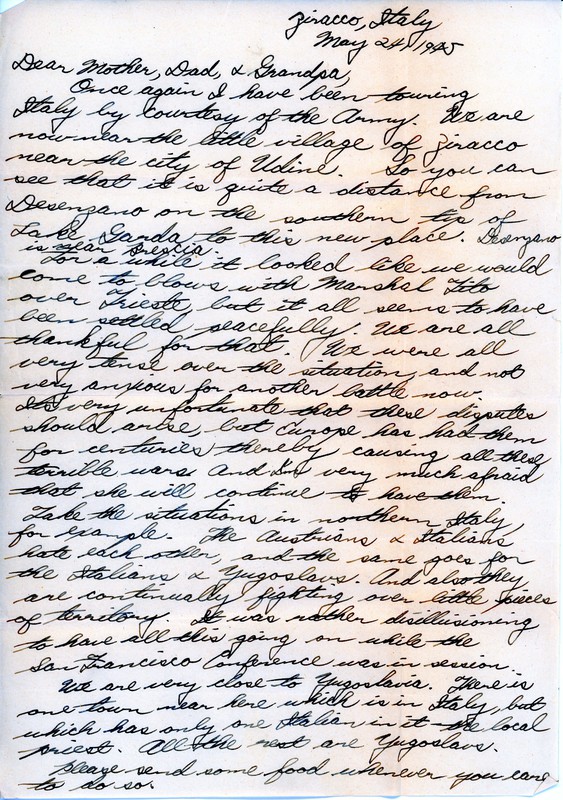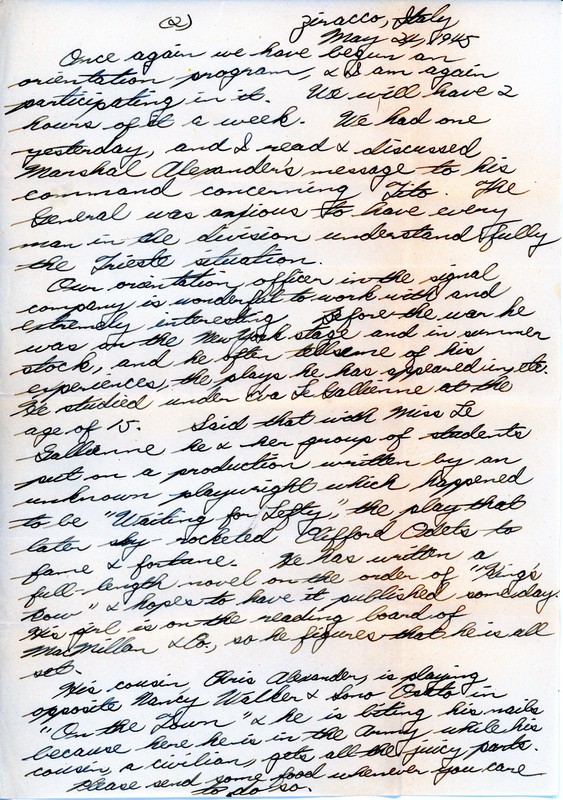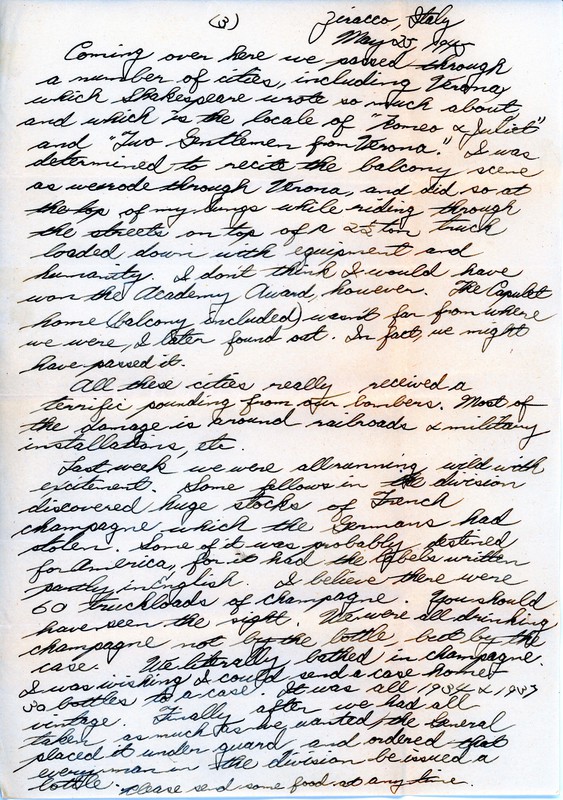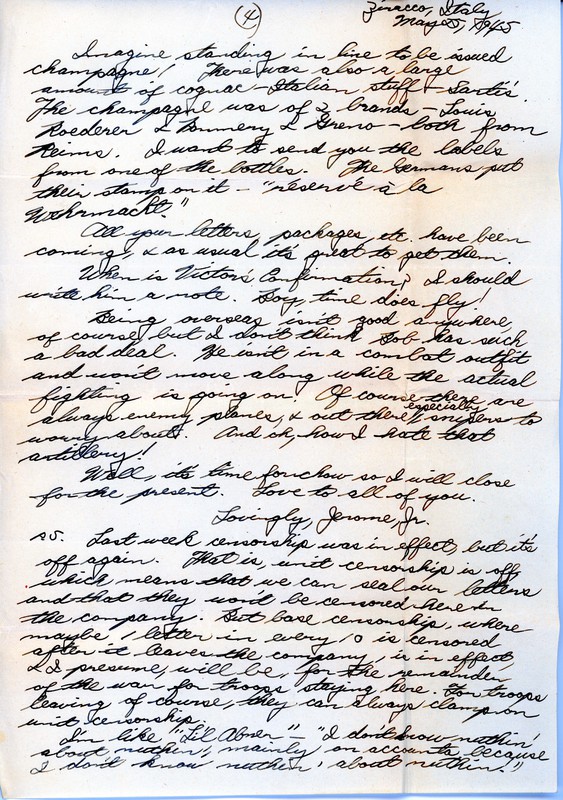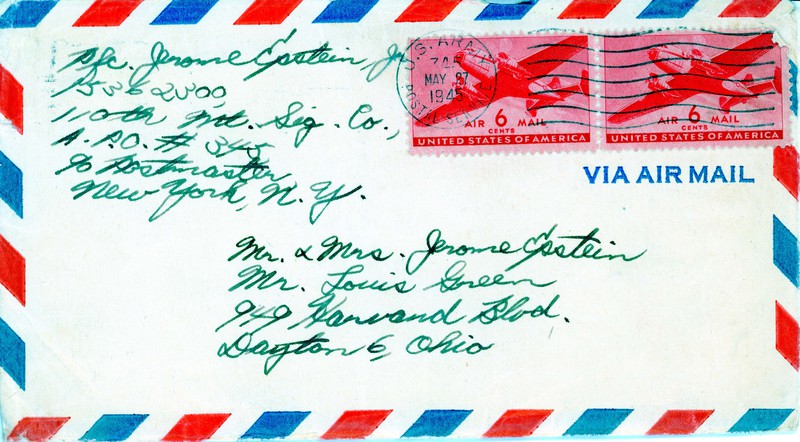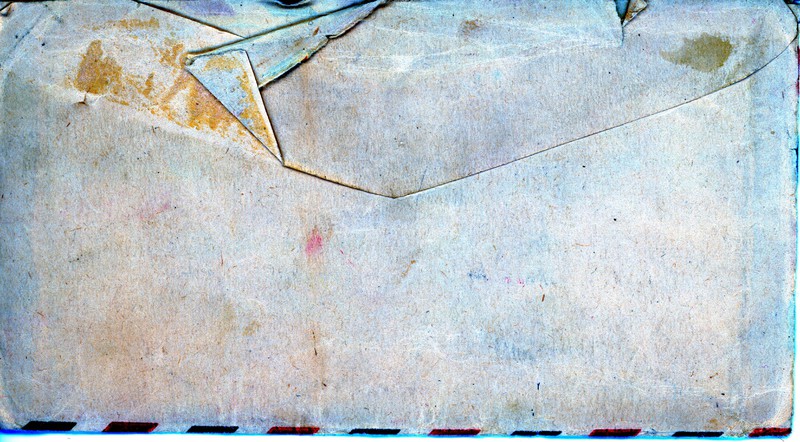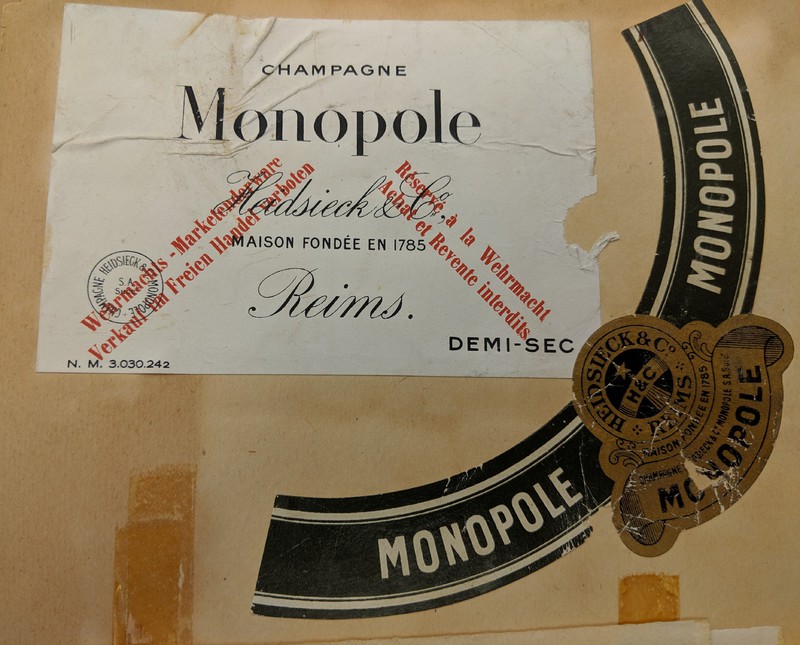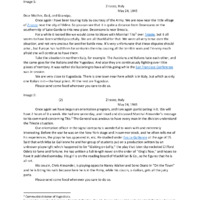Letter from Jerome Epstein, Jr. to Mr. and Mrs. Jerome Epstein and Mr. Louis Green, dated May 24th, 1945
Item
- Identifier
- C0262B001F004L020
- Creator
- Jerome Epstein, Jr.
- Date
- 5/24/1945
- Extent
- 4 pages
- Coverage
- World War, 1939-1945
- Publisher
- George Mason University Libraries
- Rights
-
Copyright not held by George Mason University Libraries. Restricted to personal, non-commercial use only. For permission to publish, contact Special Collections Research Center, George Mason University Libraries.
- Transcription
-
C0262B001F004L020
Image 1:
Ziracco, Italy
May 24, 1945
Dear Mother, Dad, and Grandpa,
Once again I have been touring Italy by courtesy of the Army. We are now near the little village of Ziracco near the city of Udine. So you can see that it is quite a distance from Desenzano on the southern tip of Lake Garda to this new place. Desenzano is near Brescia.
For a while it looked like we would come to blows with Marshall Tito over Trieste, but it all seems to have been settled peacefully. We are all thankful for that. We were all very tense over the situation, and not very anxious for another battle now. It’s very unfortunate that these disputes should arise., but Europe has had them for centuries thereby causing all the terrible wars and I’m very much afraid she will continue to have them.
Take the situation in northern Italy, for example. The Austrians and Italians hate each other, and the same goes for the Italians and the Yugoslavs. And also they are continuously fighting over little pieces of territory. It was rather disillusioning to have all this going while the San Francisco Conference was in session.
We are very close to Yugoslavia. There is one town near here which is in Italy, but which as only one Italian in it—the local priest. All the rest are Yugoslavs.
Please send some food whenever you care to do so.
Image 2:
(2) Ziracco, Italy
May 24, 1945
Once again we have begun an orientation program, and I am again participating in it. We will have 2 hours of it a week. We had one yesterday, and I read and discussed Marshal Alexander’s message to his command concerning Tito. The General was anxious to have every man in the division understand the Trieste situation.
Our orientation officer in the signal company is wonderful to work with and extremely interesting. Before the war he was on the New York stage and in summer stock, and he often tells me of his experiences, the plays he has appeared in, etc. He studied under Eva Le Gallienne at the age of 15. Said that with Miss Le Gallienne he and her group of students put on a production written by an unknown playwright which happened to be “Waiting on Lefty,” the play that later sky-rocketed Clifford Odets to fame and fortune. He has written a full-length novel on the order of “King’s Row,” and hopes to have it published someday. His girl is on the reading board of MacMillan & Co., so he figures that he is all set.
His cousin, Chris Alexander, is playing opposite Nancy Walker and Sono Osato in “On the Town” and he is biting his nails because here he is in the Army, while his cousin, a civilian, gets all the juicy parts.
Please send some food whenever you care to do so.
Image 3:
(3) Ziracco, Italy
May 24, 1945
Coming over here we passed through a number of cities, including Verona, which Shakespeare wrote so much about and which is the locale for “Romeo and Juliet” and “Two Gentlemen from Verona.” I was determined to recite the balcony scene as we rode through Verona, and did so at the top of my lungs while riding through the streets on top of a 2 ½ ton truck loaded down with equipment and humanity. I don’t think I would have won the Academy Award, however. The Capulet home (balcony included) wasn’t far from where we were, I later found out. In fact, we might have passed it.
All these cities really received a terrific pounding from our bombers. Most of the damage is around railroads and military installations, etc.
Last week we were all running wild with excitement. Some fellows in the division discovered huge stocks of French champagne which the Germans had stolen. Some of it was probably destined for America, for it had the labels written partly in English. I believe there were 60 truckloads of champagne. You should have seen the sight. We were all drinking champagne not by the bottle, but by the case. We literally bathed in champagne. I was wishing I could send a case home—30 bottles to a case. It was all 1934 and 1937 vintage. Finally after we had all taken as much as we wanted, the General placed it under guard, and ordered that every man in the division be issued a bottle.
Please send some food at any time.
Image 4:
(4) Ziracco, Italy
May 24, 1945
Imagine standing in line to be issued champagne! There was also a large amount of cognac—Italian stuff—Sartis’. The champagne was of 2 brands—Louis Roederer and Pommery & Greno—both from Reims. I want to send you the labels from one of the bottles. The German put there stamps on it—“reserve a la Wehrmacht.”
All your letters, packages, etc. have been coming, and as usual it’s great to get them.
When is Victoria’s confirmation? I should write a note. Boy, time does fly!
Being overseas isn’t good anywhere , of course, but I don’t think Bob has such a bad deal. He isn’t in a combat outfit and won’t move along while the actual fighting is going on. Of course there are always enemy planes, and out there especially, snipers to worry about. And oh, how I hate that artillery.
Well, it’s time for chow so I will close for the present. Love to all of you.
Lovingly,
Jerome, Jr.
P.S. Last week censorship was in effect, but it’s off again. That is, unit censorship is off which means that we can seal our letters and that they won’t be censored here in the company. But base censorship, where maybe 1 in every 10 is censored after it leaves the company, is in effect, and I presume, will be, for the remainder of the war for troops staying here. For troops leaving of course, they can always clamp on unit censorship.
I’m like “Li’l Abner”—“I don’t know nuthin’ about nuthin’, mainly on accounta because I don’t know nuthin’ about nuthin’!”
- Item sets
- Epstein Collection Letters
Position: 234 (2 views)

